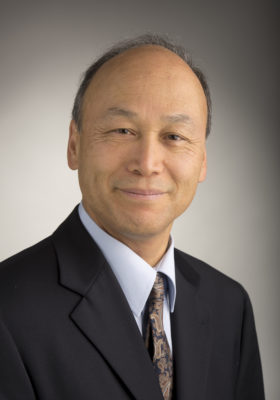 Associate Professor, Political Science Department, Simon Fraser University
Associate Professor, Political Science Department, Simon Fraser University
During my sabbatical year as a Japan Foundation Fellow, I was very fortunate that I could immerse myself in a wonderful and rich environment where I could easily access hitherto under-utilized Japanese-language materials, engage readily with Japanese scholars with similar interests, and reflect carefully upon my answer to the research question.
Professor Kawasaki carried out his fellowship at Osaka School of International Public Policy, Osaka University, from September 2000 to August 2001.
I am a political scientist, and my research at Osaka University focused on the theoretical foundations of post-World War II Japanese foreign policy. My research question was: “How far can we explain the case of Japan with the mainstream theory of international politics as formulated in the West?” Back then, there was an ongoing debate on this key question in the English-language scholarship of Japanese foreign policy. Few scholars from Japan were involved in it. During my sabbatical year as a Japan Foundation Fellow, I was very fortunate that I could immerse myself in a wonderful and rich environment where I could easily access hitherto under-utilized Japanese-language materials, engage readily with Japanese scholars with similar interests, and reflect carefully upon my answer to the research question. I am very grateful for the Japan Foundation and Osaka University for the opportunity.
As a Fellow with a young family, Professor Kawasaki experienced numerous cross-cultural experiences that made his time in Osaka even more memorable than usual.
Perhaps the most memorable event was the birth of our second daughter in Osaka. My wife did not speak Japanese, and it was a big challenge for her to have the baby delivered safely at a Japanese hospital. Back then, it was not easy to obtain the information about English-speaking gynecologists outside Tokyo. My wife and I learned a lot about Japan’s health system. Also memorable was the local kindergarten that our first daughter attended, which differed in many fascinating ways from what we had known in Canada.
From the fellowship, Professor Kawasaki developed new perspectives about the field of Japanese Studies.
The Japan Foundation fellowship affected my career in multiple ways. But most important, it made me highly aware that the world-wide scholarship of Japanese foreign affairs was (and still is) divided into two distinctive academic spheres, one in Japan and the other outside Japan. Beyond the question of languages, these two spheres constituted separate intellectual milieus on substantive matters. The Japanese scholarship was dominated by diplomatic historians in contrast to the English-language scholarship, for example. It followed that the two had different expectations as to what kinds of scholarly outputs were significant and meaningful. This awareness has led me to take two actions since the fellowship year.
First, I have been publishing my academic works separately, some in Japanese and others in English, depending on my target audiences. Second, I have explored means to bridge the two academic spheres. This has resulted in, for example, my publications that analyze the diplomatic archives of Imperial Japan (1868-1945) through the theoretical lenses developed by American political scientists, because such a combination remains rare not only in Japan but also outside Japan.
My efforts to bridge the aforementioned two spheres have yielded in three Japanese-language books: 『社会科学系のための「優秀論文」作成術』(勁草書房2010年),『社会科学としての日本外交研究』(ミネルヴァ書房2015年),『大戦略論』(勁草書房2019年).

